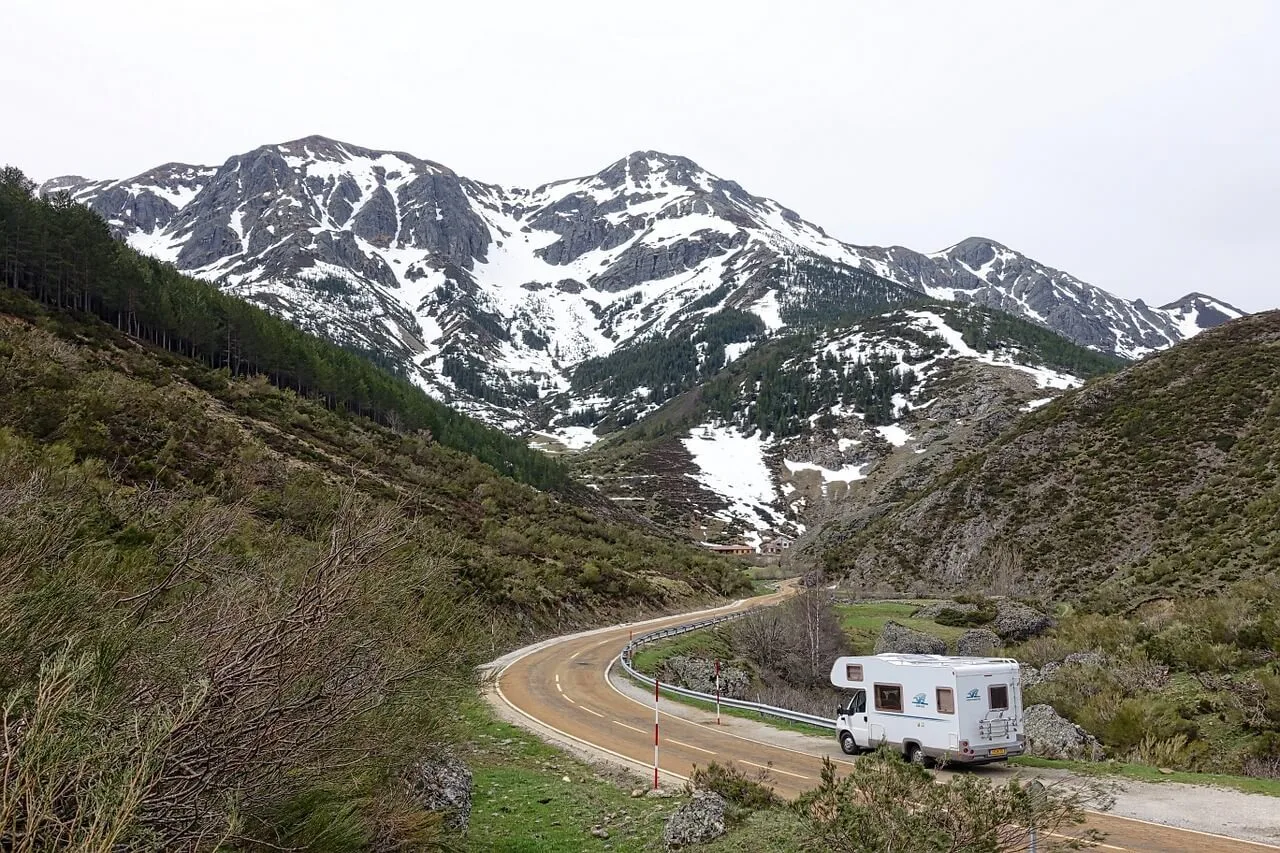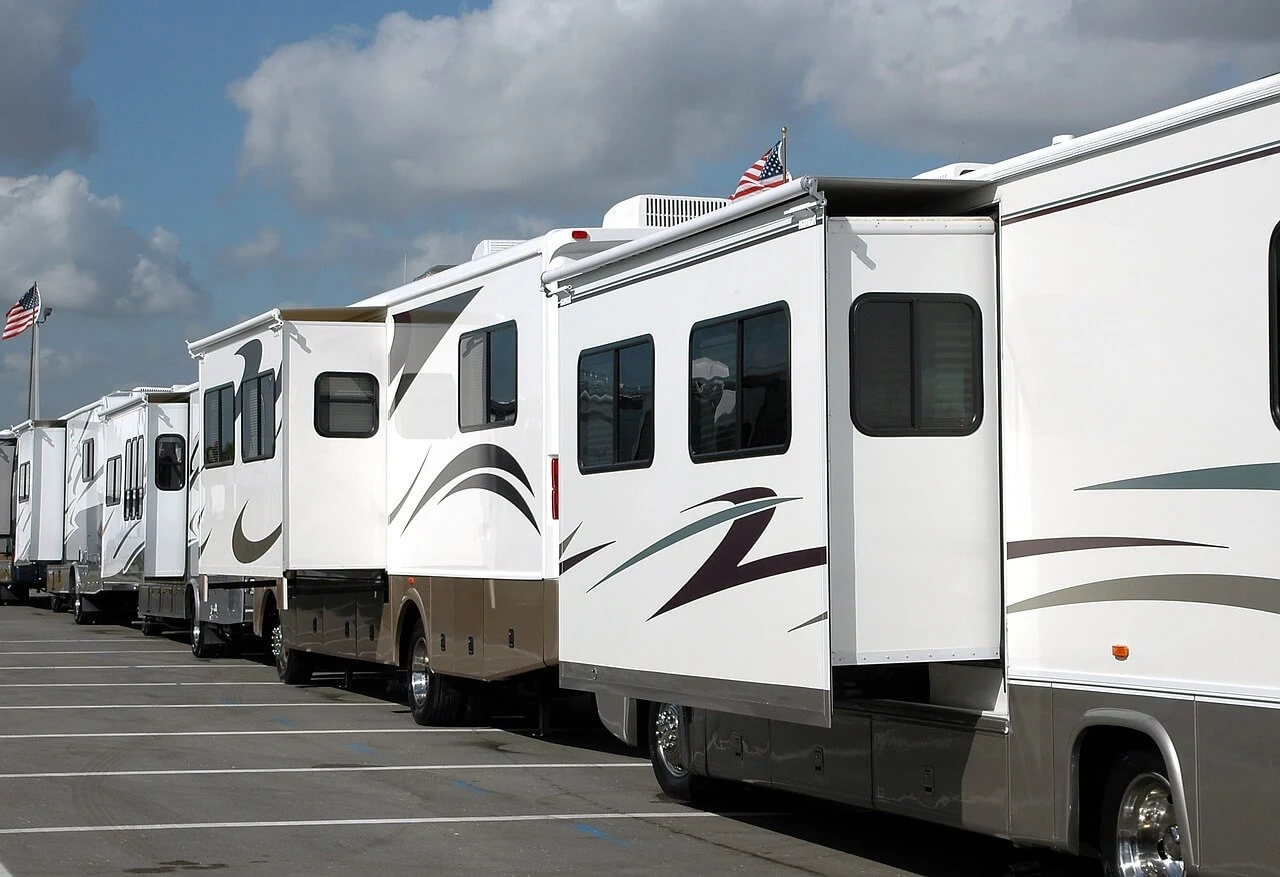I was compensated for this post but all opinions are my own. 
The frugal family is always looking for new ways to save money, reduce their debts and live a champagne lifestyle on a lemonade budget.
Most of the time this can be done by keeping a close eye on the purse strings, cutting down on impulse spending and finding ways to reduce the cost of life’s little essentials.
Yet, sometimes it takes an investment now to save money for years to come. This is why many frugal families are tempted by the prospect of an RV. For a frugal family, a recreational vehicle can seem like a great way to travel.
There’s something about an RV that appeals to the pioneer spirit. The image of taking your family out on the open road and exploring the vastness of the continental US is inherently romantic. You can have a little piece of home that you take with you wherever you go. You need never again be disappointed or ripped off by a hotel or airline.
But while the appeal of an RV speaks for itself, like any kind of vehicle, it’s a depreciating asset meaning that it starts to lose value the moment you drive it out of the dealership.
If you’re to live the RV dream yet still demonstrate your commitment to the frugal life you need to ask yourself some searching questions before putting your hard earned money down….
Am I Up To The Challenge Of Driving An RV?
While most states do not require a Commercial Driving License (CDL) to drive an RV there’s a universe of difference between driving your usual vehicle and getting behind the wheel of an RV.
Even accomplished drivers can struggle with the weight and dimensions of an RV. An RV is an unwieldy beast and being able to maneuver one is a pretty steep learning curve.
Even accomplished drivers should consider RV basic training or at the very least renting an RV for a while to get a feel for it before you commit to buy.
Getting behind the wheel of an RV should be a pleasurable and liberating experience and the last thing you’d want is to invest in something that ends up being a stressful, upsetting and nightmarish experience for you.
What Sort of RV Do I Want?
RVs are multifaceted with a range of types designed to suit the needs of different families.
An RV is a sizable investment and if it’s to lead to long term savings, you’ll need to ensure that you’ve got the best one to suit your family’s needs.
Have a look at these different categories and take the time to consider which suits you best; for even more info check out this illustrated guide to finding your perfect RV from Matador Network.
Comparison of Different Types of RVs
Class A Motorhomes- Exactly what you’d expect. A Class A motorhome is essentially a palatial home on wheels, boasting all the amenities of home including living rooms with sofas and TVs, dining tables, fully fitted bathrooms and kitchens outfitted with quartz or granite countertops. Many Class A’s even come equipped slide-outs; extra rooms that extend to give you more space. Still this luxury comes at a price and you can expect to pay $60,000 for even a basic model.
Class B Motorhomes- AKA Camper Vans, Class B motorhomes offer many of the features and craftsmanship of a Class A, but in a smaller, more maneuverable package, closer in size to an SUV.
Class C Motorhomes- Somewhere between a Class A and a Class B these are popular rental units. Compact, easy to maneuver and cheaper than a Class A yet with enough space to sleep a family of 4.
Travel Trailers- These are lightweight and towable from any pickup truck, they tend to range in size from “teardrop units” of around 12 feet to 33 feet. They can sleep up to six and start at the $7,000 dollar range. Just make sure that your vehicle is up to the challenge of towing it.
Pop-Up Trailer- A great “starter” RV, pop-up trailers are small, inexpensive and economical to run yet can sleep up to 6 people. They occupy little space making them maneuverable yet telescope up and out when static. They can include small kitchens, toilets and showers.
Truck Camper- A truck camper slides into any standard pickup bed, yet offers many of the comforts of home—at the fraction of the price of a motorhome. Moreover, they can be hauled over rugged outdoor terrain while offering all the amenities you’d expect.
What Other Costs Will I Need To Consider?
Like any vehicle an RV will need regular servicing and maintenance. If you’re to get years of vacationing pleasure from your RV, you’ll need to build a good relationship with some reliable RV Specialists. Keep in mind that the bigger the RV the more can go wrong.
If connectivity is important to you and you (or your kids) can’t function without internet technology, consider a unit that can be outfitted with mobile internet, GPS or satellite television.
Depending on the size of your vehicle you may have parking costs to consider. Most housing associations are not permissive of RVs and if you don’t have the space to accommodate your RV you may need to pay to keep it in storage.
You’ll also need to consider insurance prices, fuel costs (most RVs get between 8 and 20 mpg), and the cost of camping fees when you take your family away.
Nonetheless, while there are some considerations to bear in mind, getting a great deal on the right RV can unlock years of worry-free vacationing for you and your family. And because you’ve considered all of your ancillary costs, you won’t have any unpleasant surprises.
Check out my post about camping in Great Smoky Mountains National Park for more inspiration!


